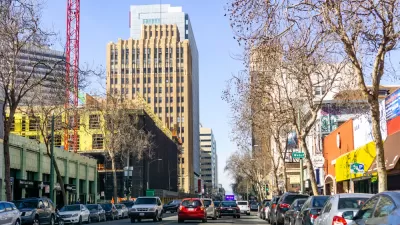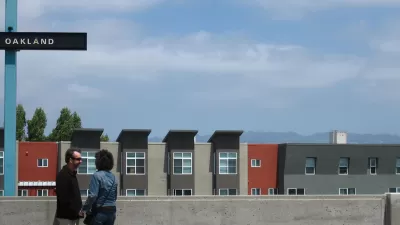A new report by Oakland, CA nonprofit Urban Strategies Council reveals that a massive surge has occurred in investor-speculator ownership in the city's low-income neighborhoods in the wake of the foreclosure crisis.
A new report by the Oakland-based nonprofit Urban Strategies Council shows that-as of October 2011-investors had acquired 42 percent of all properties that went through foreclosure since 2007 in Oakland. Of these properties acquired by investors, 93 percent are located in the low-income flatland neighborhoods of the city. Further, only ten out of the top 30 most active investors are located in Oakland.
The findings in the report raise a series of questions regarding the role that investors are playing-and will continue to play-in Oakland neighborhoods already devastated by the foreclosure crisis. The spike in non-local ownership and non-owner occupied housing presents new concerns related to the extraction of wealth from low-income neighborhoods, in addition to ongoing property maintenance and management issues. Given the nearly exclusive concentration of investor activity in Oakland's low-income neighborhoods, the new report considers what the rapid surge in investor-ownership might mean regarding shifting tenure, neighborhood succession, and the displacement of residents.
FULL STORY: Who Owns Your Neighborhood? The Role of Investors in Post-Foreclosure Oakland

Planetizen Federal Action Tracker
A weekly monitor of how Trump’s orders and actions are impacting planners and planning in America.

Restaurant Patios Were a Pandemic Win — Why Were They so Hard to Keep?
Social distancing requirements and changes in travel patterns prompted cities to pilot new uses for street and sidewalk space. Then it got complicated.

Maui's Vacation Rental Debate Turns Ugly
Verbal attacks, misinformation campaigns and fistfights plague a high-stakes debate to convert thousands of vacation rentals into long-term housing.

In California Battle of Housing vs. Environment, Housing Just Won
A new state law significantly limits the power of CEQA, an environmental review law that served as a powerful tool for blocking new development.

Boulder Eliminates Parking Minimums Citywide
Officials estimate the cost of building a single underground parking space at up to $100,000.

Orange County, Florida Adopts Largest US “Sprawl Repair” Code
The ‘Orange Code’ seeks to rectify decades of sprawl-inducing, car-oriented development.
Urban Design for Planners 1: Software Tools
This six-course series explores essential urban design concepts using open source software and equips planners with the tools they need to participate fully in the urban design process.
Planning for Universal Design
Learn the tools for implementing Universal Design in planning regulations.
Heyer Gruel & Associates PA
JM Goldson LLC
Custer County Colorado
City of Camden Redevelopment Agency
City of Astoria
Transportation Research & Education Center (TREC) at Portland State University
Camden Redevelopment Agency
City of Claremont
Municipality of Princeton (NJ)





























